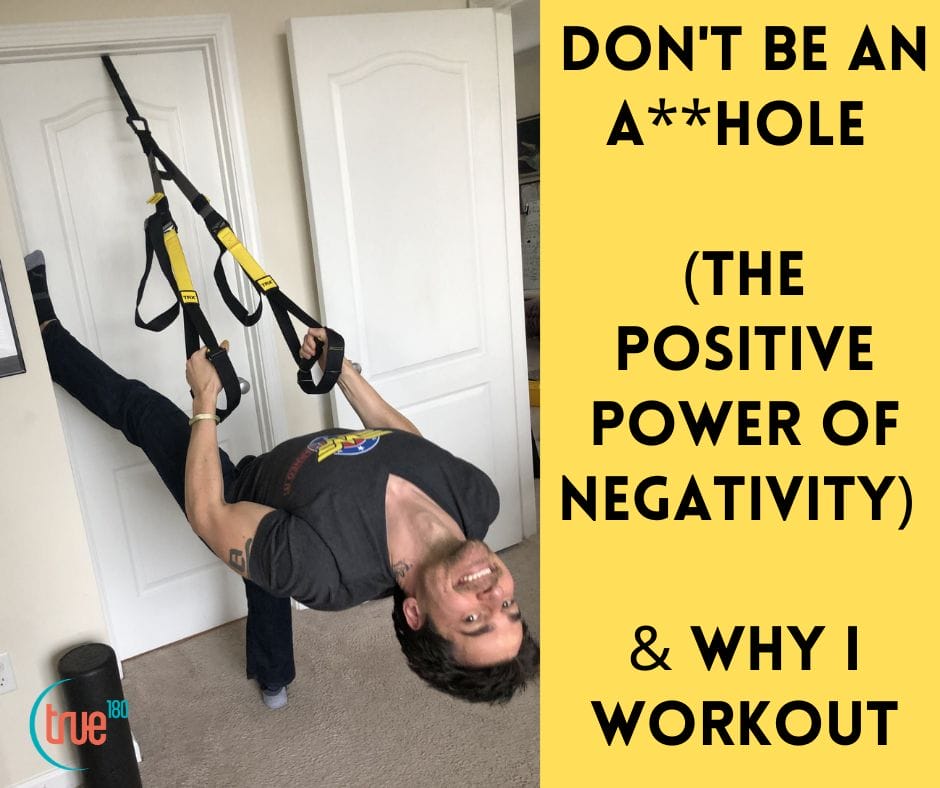I’ll let you in on a little secret, I usually do not feel
like working out. Sometime I am inspired, and it’s awesome, but
usually when I have time to workout I am tired and would rather be doing
nothing at all.
For
many years I tried to focus on my goals and what I wanted and other
things that I learned from books on positive
thinking, secrets, etc. And for all of those years it was a roller
coaster of success: sometime that worked really well and I was inspired
to be consistent. However the inspiration always left me eventually,
and I would miss 50-100% of my workouts and feel like shit. Physically
like shit, and then emotionally, and then I’d start being an asshole…
and eventually I would put 2 and 2 together and realize that I wasn’t
like this when I was training regularly.
When
I hit some sort of “bottom” I would try to refocus on what I want, be
positive, etc. and get back into a groove. Life would be good, then the
inspiration would leave me and the cycle recycles
itself.
The
birth of my first child, Nora, actually marks the last time I got less
than 3 workouts in a week. In spite of getting less sleep, being busier
and working far more hours I became more consistent about my workouts.
Why? The power of negativity.
As
humans we are far more motivated to avoid than we are to gain. We are
far more motivated to hold onto what we have than we are to earn
something. This has nothing to do with how optimistic you are this is
about the way our brains are wired. Our loss aversion is one of our
many cognitive biases. This bias is running our lives when we throw
“good money after bad.” In other words, when we are invested in
something like a failing business idea, our instincts and drive is to
pour in more and more because we can’t stand the idea of losing all that
we’ve already invested. This is, of course, completely irrational
because investing more resources into a business that ain’t gonna work
ain’t gonna make it work, it just adds tragedy to failure and keeps your
from moving on to anything else that might actually work.
[Aside: fun fact about visualization – as in visualizing the outcome you want – it actually decreases follow
through and motivation. Most of what is in books on positive thinking
or secrets is 100% BS and the research quoted in them is taken out of
context, or is so weak that it can’t be replicated. If something can’t
be replicated that means it was just random.]
We
can, however, sometimes use our built in biases to our advantage.
Here’s my example: I had a rough childhood. I realized that when I got
fewer than 3 workouts per week I didn’t like who I was. I was snappy,
rude, insensitive, and in so many other ways, I was an asshole. When I
see how I am without consistent exercise I am terrified of being a
father with an out of control temper or anger. Terrified.
When
it is time to workout I don’t ask myself if I feel like it (because the
answer is “no” 80% of the time), I just think about what I don’t want:
I don’t want to feel like shit. I don’t want to be an asshole. I do
not want to be a father who can’t control his temper. I don’t want to
be like my relatives who struggle
getting up and down off the floor, or who can’t enjoy playing with their
children or grandchildren, or who have to visit at least one doctor
every week.
We
are far more motivated to avoid than we are to gain because we are
human. If you’re having trouble with consistency it might be helpful to
embrace the power of negative thinking.
Your coach,
Josef
PS- If you have any questions or want to set up a call (this let’s us avoid phone tag) to go over goals or brainstorming the positive power of negativity for you – grab a call (it’s included in all our memberships!)

